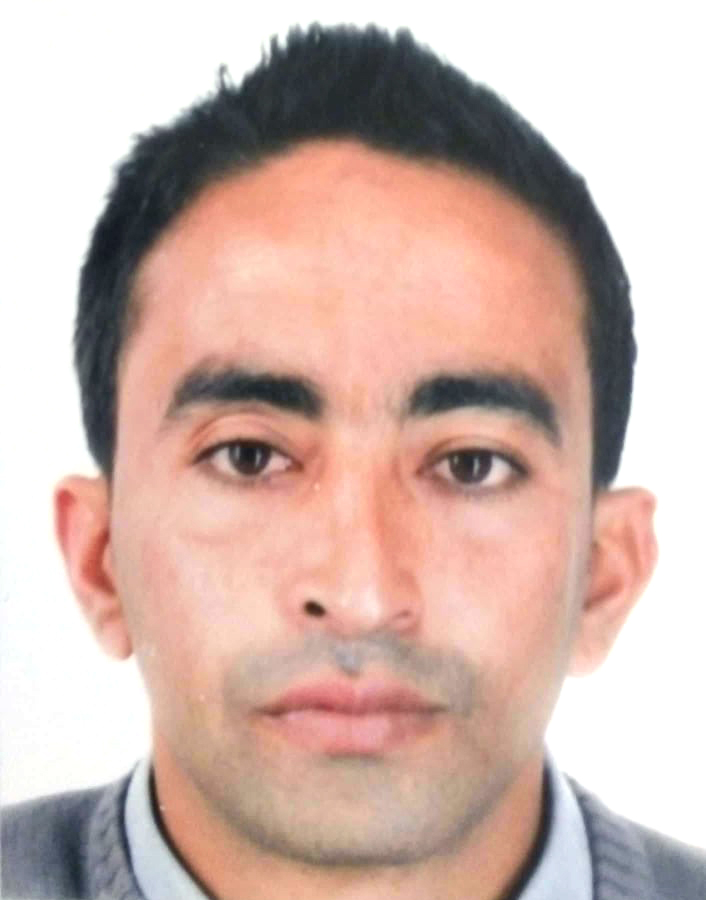Finding alternatives to reduce pesticides use in FruitFlyNet-ii context

Dr. Hassib Ben Khedher has recently joined our Fruitflynet-ii ENI CBC Med Programme team as technical manager of Centre Regional des Recherches en Horticulture et Agriculture Biologique (CRRHAB) in Sousse, Tunisia.
He has an agronomic background graduating from Higher Agronomic Institute Chott Meriem (ISA-CM) as engineer. He got his post-graduate diploma in IPM (Integrated Pest Management of Mediterranean fruits trees) from International Centre for Advanced Mediterranean Agronomic Studies of Bari, Italy (CIHEAM) in 2013.
In July 2020, he obtained his PhD diploma in Entomology from Ataturk University, Erzurum,Turkey. He has an expertise in the taxonomy and systematic of insects specifically predators and parasitoids belonging to Hymenoptera order. Also obtains a large knowledge about diagnosis and control of pests of crops, in the framework of an IPM program, respecting and protecting our ecosystem and biodiversity.
Which are the actions taken so far on behalf of your institution in FruitFlyNet-ii context and what kind of initiatives will you implement the following months?
Hassib:Compared to our European partners, we started the work with a bit delay in the framework of the project. Despite this delay and since I was recruited as a technical manager, working for Research Centre for Horticulture and Organic Agriculture at Chott-Mariem (CRRHAB) from July 2021, I visited the experimental site which was chosen to be installed the electronic traps (e-traps).
This site is located in Khlidia belonging to the governorate Ben Arous (NorthernTunisia). I designed its geographical map based on GPS coordinates determined directly in the field. I recorded also data relating to varieties of peach cultivated in the site such as names of varieties, their areas, spacing between trees and between rows, plantation density, date of plantation, harvesting period and characteristic of fruit (fruit shape and color). Based on the established map and on that data, it is possible to suggest some recommendations for the improvement and the optimization of the prototype. Also, we are looking for local suppliers to purchase Delta traps, sticky materials and pheromone capsules (Trimedlure and Biolure) which we will use in the monitoring of Mediterranean Fruit Fly (MedFly).
The installation of Delta traps in the experimental site according to an experimental design approved and accepted by all partners will be made in the next months. This will allow us to monitor MedFly as well as the identification of insects captured in traps. Data issued from this monitoring will be discussed with our partners, providing us a good idea how to improve the prototype e-trap when it will be received.
What kind of innovation do you bring in the FFN-ii context as an institution?
Hassib:I think that CRRHAB can contribute highly because our institution participates in all research projects aiming to produce agricultural products organic or managed under IPM program (Integrated Pest Management) and in this context is our project. Furthermore, in the recent years, in Tunisia, cultivated peach areas are increasing in spite of the heavy damages induced every season by the Medfly. Finding alternatives to reduce the use of pesticides in the control of the MedFly respecting human health and environment and participation for the first time in the integration of technology into agriculture through improvements of e-traps and e-services represent novelty for CRRHAB and Tunisia.
How do you intend to involve local stakeholders in your initiatives?
Hassib:Stakeholders have a big importance in our project. For this reason, through social media and our personal relations, we try to be in permanent contact with them. We plan to visit farmers in their farms to explain e-traps and e-services and identify their opinion on the subject.
How did you manage to overcome difficulties related to covid pandemic?
Hassib:Compared to other European countries, the situation is not easy in Tunisia with the COVID pandemic which has limited our works in lab and in the fields. We tried to overcome this problem with online meetings with stakeholders, as well as with visits to experimental sites in emergency case wearing our masks. We are trying also to get vaccine as soon as possible to work easily, to facilitate our technical visits and to travel to see the prototype and its mode of operation.
- About CRRHAB
-
At the Laboratory of Entomology and Insect Ecology of the Regional Research Centre on Horticulture and Organic Agriculture, a work is conducted on the Ecology/ Biology of major insect species attacking fruit trees particularly stone fruits (almond, peach, apricot), Citrus and Figs (Ficus carica). Methods and nature-based techniques are developed to control pests through the Integrated Pest Management principles with the minimum use of pesticides.
The target insect species are:
(1) bark and wood-boring insect species on stone fruits. We intend to understand the alarming outbreak of many species which is strongly amplified by the effects of climate change (lack of precipitations, hot and dry periods) that have become more frequent in the last decades,
2) fruit flies mainly the Mediterranean Fruit fly (MedFly), (Ceratitis capitata) and detection of vinegar Fruit fly Drospophila (suzukii) which is absent in Tunisia. For the MedFly, experiments are conducted to attract and kill method using male attractant (Trimedlure) and mass trapping using female and male attractants in Citrus orchards,
(3) the influence of crops association on the aphid infestation on pepper : we intend to study the influence of using onion as a second crop on the infestation of local pepper by aphids and
(4) pollinators which play an important functional role in the fruit and legume production and due to the excessive use of pesticides in Agriculture, many species of them are at risk of extinction for these reason we aim to identify and quantify pollinator species in orchards and evaluate their activities.
Regarding academic activities, many students (Engineers, Master, PhD students) are yearly enrolled in the laboratory of Entomology and Insect Ecology where they make and enrich their research, supervised by our laboratory staff and in cooperation with the Higher Agronomic Institute of Chott-Mariem (ISA-Chott-Mariem).










